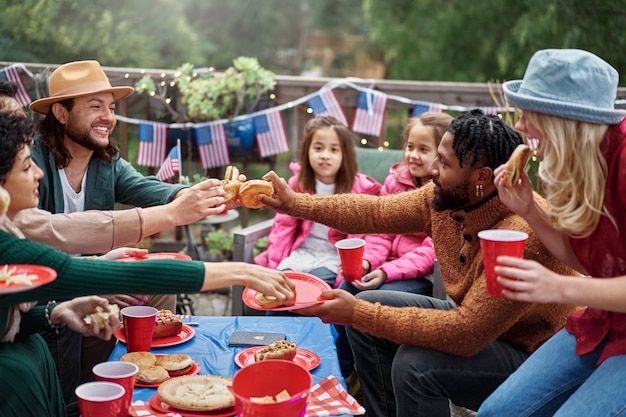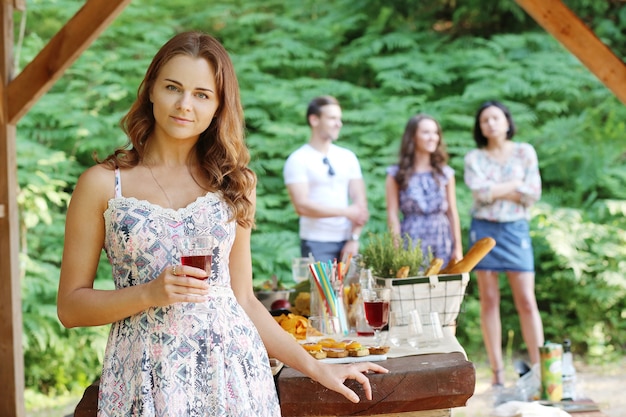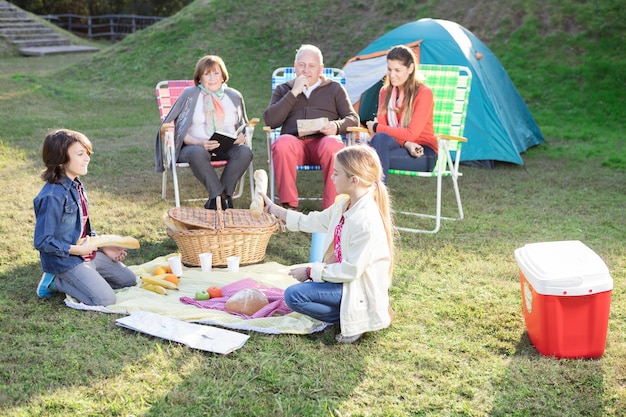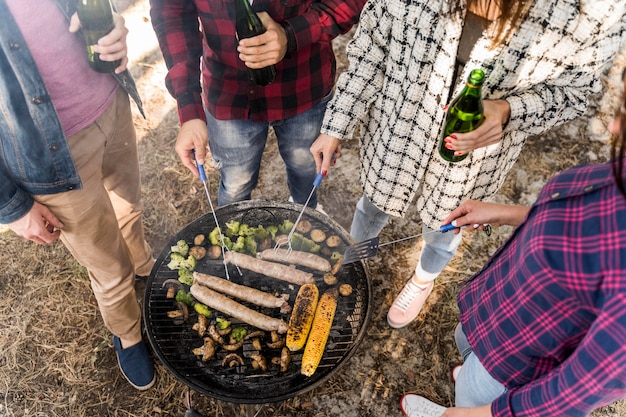How do you make a BBQ safe?
Barbecue season is a much-loved tradition in the UK, with friends and family gathering outdoors to enjoy delicious grilled food. However, it is important to prioritize safety when firing up the grill to prevent accidents and ensure everyone has a great time. Whether you’re a seasoned pitmaster or a novice griller, here are some essential tips for making your BBQ experience safe and enjoyable.
Choosing the right location
Selecting the appropriate location for your barbecue is crucial. The grill should be placed on a level surface away from any flammable materials such as trees, furniture, or plants. Ideally, position the barbecue at least 10 feet away from the house or any structures to minimize the risk of fire spreading. Additionally, make sure the area is well-ventilated to prevent the buildup of potentially dangerous gases.
Preparing the grill
Before igniting the grill, it’s important to ensure it is clean and in good working condition. Remove any grease or food residue from the grates to prevent flare-ups. Inspect the gas connections for leaks by applying a soapy water solution to the hoses and connections. If you see bubbles forming, there may be a leak, and the grill should be repaired before use. For charcoal grills, make sure the coals are completely cooled before disposing of them in a metal container.
Safe handling of propane
If you’re using a propane grill, follow these safety measures to handle the propane cylinder properly:
- Check for leaks: Before connecting the cylinder, inspect it for any signs of damage or wear. Apply soapy water to the valve and connections and look for bubbles, which indicate a leak.
- Store securely: When not in use, store propane cylinders upright in a well-ventilated area away from direct sunlight or high temperatures. Avoid storing them indoors or in enclosed spaces.
- Turn off properly: Always turn off the gas supply at the cylinder valve after use and before disconnecting the grill. This helps prevent gas leaks.
“Ensuring the safe handling of propane is crucial to avoid fire hazards and potential injuries. Take the time to inspect, store, and turn off the cylinder properly for a worry-free grilling experience.”
Safe food practices
Proper food handling is essential to prevent foodborne illnesses. Here are some guidelines to follow:
- Keep cold food cold: Store perishable items in a cooler with ice or freezer packs until ready to cook.
- Cook thoroughly: Use a food thermometer to ensure meats, such as chicken and burgers, reach a safe internal temperature. Refer to recommended cooking times and temperatures to avoid undercooking.
- Avoid cross-contamination: Use separate cutting boards and utensils for raw and cooked food to prevent the spread of bacteria. Wash your hands thoroughly before and after handling raw meat.
Supervise the grill
Never leave the grill unattended, especially when children or pets are around. Accidents can happen quickly, and it’s important to have a watchful eye on the grill at all times. Assign a responsible adult to be in charge of grilling duties and keep a fire extinguisher or water source nearby in case of emergencies.
By following these safety measures, you can ensure a safe and enjoyable BBQ experience for everyone involved. Prioritizing safety will give you peace of mind and allow you to focus on creating delicious meals and unforgettable memories with your loved ones.
How far should a BBQ be from a tent?
When it comes to enjoying the great outdoors, camping and barbecues often go hand in hand. However, it’s important to consider the safety precautions when setting up a BBQ near your tent. The last thing you want is for your relaxing camping trip to turn into a disaster. So, how far should a BBQ be from a tent? Let’s explore this topic and ensure your camping experience remains incident-free.
Understanding the Risks
Barbecues emit heat, flames, and smoke, which can pose various risks to your tent. One of the primary concerns is the risk of fire. Tents are typically made of combustible materials, like nylon or polyester, which can catch fire easily if exposed to heat or sparks. Additionally, the smoke from the BBQ can impregnate the fabric, leaving behind unpleasant odors that may linger even after your camping trip ends.
Recommended Safety Distance
To ensure the safety of your tent and everyone around, it’s generally recommended to keep the BBQ at least 10 feet (3 meters) away from your tent. This distance allows for an adequate buffer zone to minimize the risk of fire. However, keep in mind that different campsites may have their own specific rules and regulations regarding barbecue placement, so it’s always a good idea to check with the site management for any specific requirements they may have.
Additional Safety Tips
In addition to keeping a safe distance between your BBQ and tent, here are some extra safety tips to follow:
- Choose a level and stable surface away from any flammable materials or vegetation.
- Keep a fire extinguisher or bucket of water nearby for emergencies.
- Avoid using liquid accelerants, such as lighter fluid, to start your BBQ.
- Never leave your BBQ unattended and ensure it’s fully extinguished before leaving or going to sleep.
- Clean and maintain your BBQ regularly to reduce the risk of flare-ups.
“Safety should always be the top priority when combining camping and barbecues.”
By following these safety guidelines, you can enjoy a delicious BBQ while keeping your tent and surroundings safe. Remember, safety should always be the top priority when combining camping and barbecues. So plan ahead, follow the recommended distance, and take the necessary precautions to ensure a memorable and incident-free camping trip.
Should you put petrol on a BBQ?
Introduction
Barbecues are a popular way to enjoy the summer months in the UK. Whether you’re grilling burgers, sausages, or vegetables, it’s important to know the proper safety precautions when using a barbecue. One common question that arises is whether or not it’s safe to use petrol as a fire starter for your BBQ. In this article, we’ll discuss the potential risks and alternatives to using petrol.
The Dangers of Petrol
Using petrol as a fire starter can be extremely dangerous and is strongly advised against. Petrol is highly flammable and can cause unexpected explosions and uncontrollable fires. It is important to remember that petrol is designed for use in vehicles and machinery, not for starting barbecues. The fumes released by petrol can also be harmful if inhaled, posing a risk to your health.
Safer Alternatives
There are several safer alternatives to using petrol as a fire starter for your BBQ. One option is to use lighter fluid specifically designed for barbecues. This fluid is formulated to ignite quickly and burn safely, reducing the risk of accidents. Another alternative is to use natural fire starters made from materials such as wood chips, newspaper, or charcoal starters. These options are more environmentally friendly and pose less risk to your safety.
Proper BBQ Safety
In addition to avoiding the use of petrol, it’s important to follow general safety guidelines when using a barbecue. Some key tips include:
- Always set up your barbecue in a well-ventilated area away from any structures or flammable materials.
- Keep a fire extinguisher or bucket of water nearby in case of emergencies.
- Never leave a lit barbecue unattended.
- Ensure your BBQ is sturdy and placed on a flat surface to prevent tipping.
Conclusion
Using petrol as a fire starter for your BBQ is not only dangerous but also poses a serious risk to your safety and health. It’s important to opt for safer alternatives such as lighter fluid or natural fire starters. Additionally, always prioritize proper BBQ safety measures to ensure a enjoyable and incident-free grilling experience.



